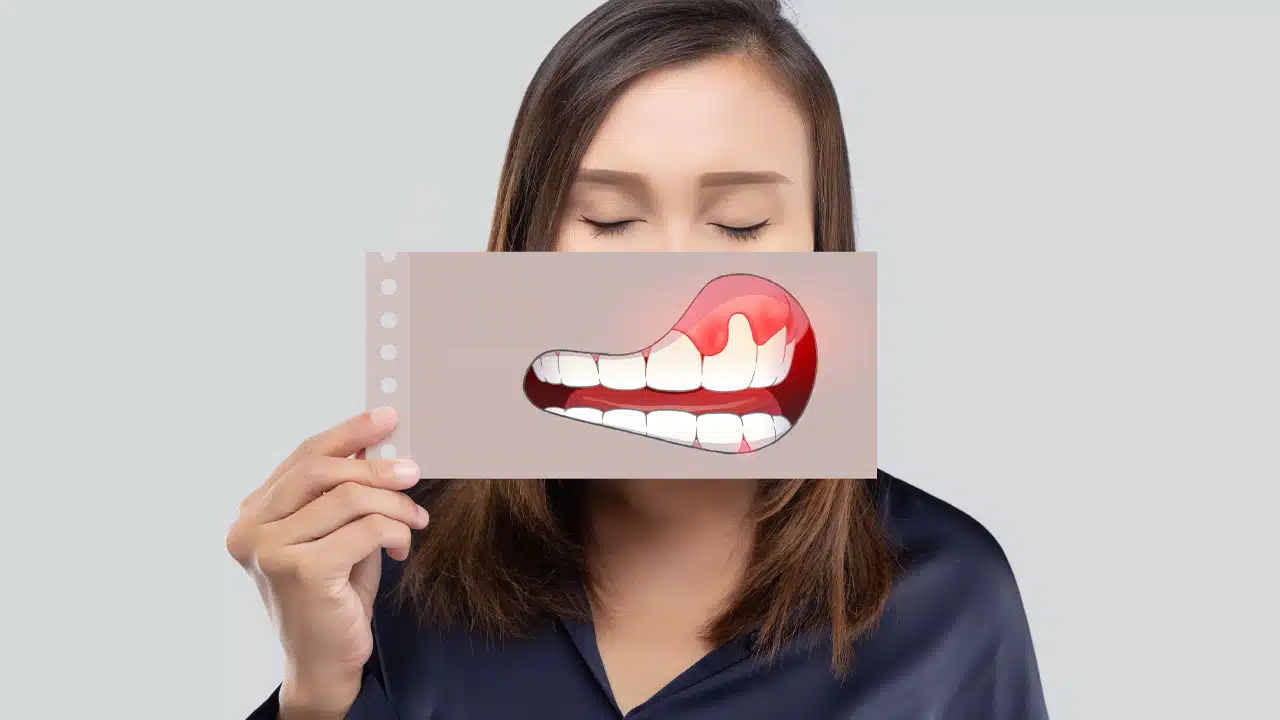
Oral cancer is a type of cancer of the throat and mouth. It is part of a broader group of cancers known as head and neck cancers and is often categorized under oral cavity and oropharyngeal cancer.
According to the American Cancer Society’s 2023 estimates, approximately 54,540 new oral cavity or oropharyngeal cancer cases will be diagnosed this year, leading to around 11,580 deaths. While oral cancer is rare compared to other types of cancer, understanding the risks, recognizing the symptoms, and prioritizing early detection can make a crucial difference in treatment outcomes.
Risks
Several risk factors contribute to the development of oral cancer. Some of the most common include:
- Tobacco use: Smoking cigarettes, cigars, or pipes and chewing tobacco increases the risk of developing oral cancer. Tobacco products contain carcinogens, including benzene, formaldehyde, and arsenic. Tobacco also causes chronic inflammation of the mouth, interfering with cell turnover and repair and inhibiting your immune system. This creates an optimal environment for cancerous cellular mutations.
- Alcohol consumption: Heavy alcohol use significantly elevates the risk of oral cancer due to several factors. Alcohol irritates and damages mouth cells, leading to mutations. It also acts as a solvent for other carcinogens, amplifying their harmful effects. Additionally, alcohol’s byproduct, acetaldehyde, is a known carcinogen. Compounding these issues, heavy drinking can result in nutritional deficiencies and a weakened immune system, making the body more susceptible to cancer.
- Human papillomavirus (HPV): Infection with certain types of HPV, particularly HPV 16, has been linked to oral cancer. HPV can cause cellular changes in the oral cavity, leading to malignant tumors. Unlike other risk factors like tobacco and alcohol, HPV-related oral cancers often affect younger individuals. They may not present traditional symptoms, making them harder to detect in the early stages.
- Age and gender: Oral cancer is more prevalent in individuals over 40, likely due to cumulative exposure to risk factors like tobacco and alcohol over time. Additionally, men are diagnosed with oral cancer more frequently than women. This gender disparity may be attributed to historically higher rates of tobacco and alcohol use among men, although lifestyle and hormonal factors could also play a role.
- Diet: A diet low in fruits and vegetables may contribute to oral cancer risk. Fruits and vegetables are rich in antioxidants, vitamins, and other phytonutrients that help combat cell-damaging free radicals and inflammation, which can lead to cancer. The lack of these protective nutrients creates a less resilient environment in the oral cavity, making it more susceptible to carcinogenic influences like tobacco and alcohol.
- Sun exposure: Excessive sun exposure to the lips can elevate the risk of oral cancer. Ultraviolet (UV) rays from the sun can cause cellular damage, leading to mutations and the development of malignant cells over time. The lower lip is especially vulnerable due to its direct exposure to sunlight. Lip balms with SPF and other protective measures like hats and umbrellas are essential for mitigating this specific cancer risk.
Symptoms
Early detection is crucial for successful treatment of oral cancer. Symptoms include:
- Ulcers or sores in the mouth that do not heal within two weeks
- Unexplained pain or tenderness in the mouth, lips, or throat
- Red or white patches inside the mouth or on the lips
- Persistent trouble with chewing, swallowing, or moving the jaw and tongue
- Hoarseness or a change in voice
- Unexplained weight loss
- Ear pain without hearing loss
If you experience any of these symptoms, it is crucial to consult a healthcare provider for a thorough examination.
Early Detection
Early detection of oral cancer improves the chances of successful treatment. Regular dental check-ups are essential as dentists can often identify precancerous and cancerous abnormalities you may not notice. Additional tests like biopsies, imaging studies, and endoscopies may also be recommended for a more accurate diagnosis.
Take Control of Your Oral Health: Act Early to Prevent Oral Cancer
Oral cancer is a serious condition, but understanding the risks and symptoms can be crucial in early detection and successful treatment. If you smoke, consume alcohol, or have other risk factors, regular screenings are even more critical.
If you’re concerned about oral cancer, schedule an appointment for an oral examination with Valley Dental Care of Plainfield at (815) 436-6800. Your health is our priority, and we are committed to providing you with the best care possible.